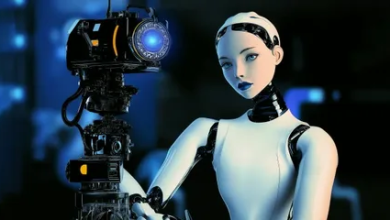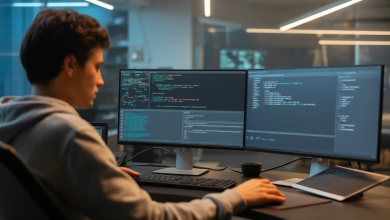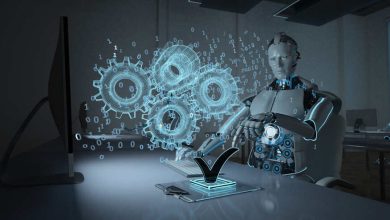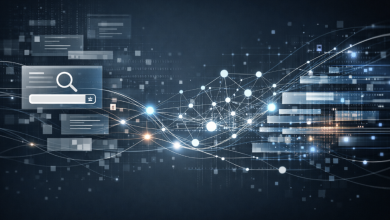HR leaders are standing at a pivotal moment. While fears that AI will replace the job entirely are considerably exaggerated, the fact remains that the technology is having a massive impact on the roles and responsibilities HR professionals have. The question is no longer ‘should HR adopt AI?’ but rather, ‘how can HR teams best harness this technology’s potential?’ Despite the promise AI offers for streamlining operations and enhancing decision making, many HR departments remain unprepared for this transformation. HR leaders must equip themselves with not only an understanding of how AI can support their workforces, but must equally be ready to leverage the technology in their own role as strategic leaders.
Overhauling recruitment with AI
The traditional recruitment process is notoriously time-intensive, with HR professionals spending countless hours sifting through CVs, coordinating interviews, and managing candidate communications. AI systems are now transforming this workflow, delivering remarkable efficiency at scale. These intelligent tools can analyse thousands of CVs within minutes, identifying qualified candidates based on specific criteria, dramatically reducing the initial screening time.
AI-powered systems can achieve up to 60% efficiency improvements in candidate review processes. This acceleration doesn’t simply save time; it enables HR teams to focus on higher-value activities like candidate engagement and cultural fit assessment. Beyond recruitment, AI is reshaping onboarding through personalised learning paths and knowledge agents that provide instant access to company information.
The implications extend beyond efficiency. When properly implemented, AI-driven recruitment tools can help reduce unconscious bias in hiring decisions, fostering more diverse and inclusive workforces. However, this requires careful algorithm design and continuous monitoring to ensure the technology doesn’t perpetuate existing biases in historical hiring data. It’s crucial to recognise that human beings also possess inherent biases, making side-by-side testing between AI and human decision-making essential to ensure consistent, fair outcomes.
Maintaining quality through continuous testing
Organisations must implement rigorous side-by-side testing protocols to validate AI recruitment results against human judgement. This comparative approach ensures that AI systems produce candidate selections that align with expected human outcomes whilst potentially eliminating some of the unconscious bias that naturally occurs in human decision-making
These testing frameworks should include diverse evaluation panels and blind review processes to maintain objectivity.
The widening AI readiness gap
Despite near-universal claims of AI readiness, a concerning reality gap exists between perception and practice. According to Corndel’s 2025 Workplace Training Report, while 97% of HR leaders claim their organisations offer artificial intelligence training, only 39% of employees have actually received it. More troubling still, just 14% of employees considered their AI training highly effective.
Without proper training, AI risks becoming a source of anxiety rather than opportunity. This lack of preparation creates a divide between those confident using new tools and those who feel sidelined, which can fuel disengagement and mistrust in the workplace.
The urgency of AI adoption in HR
Technological improvements in artificial intelligence are now measured in days and weeks rather than years, fundamentally altering the competitive landscape for HR functions. This acceleration means that organisations delaying AI adoption risk falling significantly behind peers who embrace these tools early.
The rapid evolution of AI technology makes it critical for HR departments to establish robust practices and frameworks now. Early adopters gain valuable experience in managing AI implementation challenges whilst building organisational competency that becomes increasingly difficult to replicate as the technology becomes more sophisticated.
Proactive skills development through AI
Perhaps one of AI’s most valuable contributions to HR lies in its ability to identify and address organisational skills gaps. Advanced analytics platforms can now map existing workforce capabilities against future needs, creating unprecedented visibility into talent development requirements. This strategic insight enables proactive rather than reactive learning and development initiatives.
AI excels at analysing patterns across vast datasets, spotting emerging skills trends both within organisations and across industries. By examining employee performance data, learning profiles, and career trajectories, AI can suggest personalised development pathways that align individual growth with organisational needs.
Yet despite 92% of HR leaders claiming their organisation focuses on technical and data skills gaps, 65% of employees have not received data skills training in the past year. This represents a significant missed opportunity, as without proper training and understanding, HR professionals may misinterpret AI insights or become overly reliant on data without applying necessary human judgment.
Human expertise in an AI-enhanced function
Despite AI’s impact, successful HR functions will always require a distinctly human touch. While AI excels at processing information and identifying patterns, it cannot replicate human judgment, empathy, or ethical reasoning, qualities essential for effective people management. The most successful organisations view AI not as a replacement for HR professionals but as a powerful tool that enhances their capabilities.
The skills that define exceptional HR leaders, namely relationship building, conflict resolution, change management, and strategic thinking, become even more valuable in an AI-enhanced workplace. These uniquely human capabilities complement AI’s analytical strength, creating a partnership that delivers better outcomes than either could achieve alone.
This partnership requires HR professionals to develop new competencies around AI implementation and governance. Understanding how algorithms work, recognising their limitations, and ensuring fair and ethical application of AI tools becomes a critical responsibility. Organisations must invest in upskilling HR teams to serve as informed stewards of these powerful technologies.
Charting the course for tomorrow’s HR
It’s clear that AI is reshaping HR functions across industries. However, the transition to AI-enhanced HR requires thoughtful change management. Employee concerns about data privacy, job security, and algorithmic decision-making must be addressed transparently. By involving HR teams in technology selection and implementation, organisations can ensure the human perspective remains central to AI deployment.
What approach is needed will differ because of factors such as industry context or organisational size. However, it’s essential to develop a strategy with clear goals and to evaluate each AI implementation decision against those objectives. The future of HR isn’t humans versus AI, it’s humans and AI working together to create more effective, efficient, and engaging workplaces.




